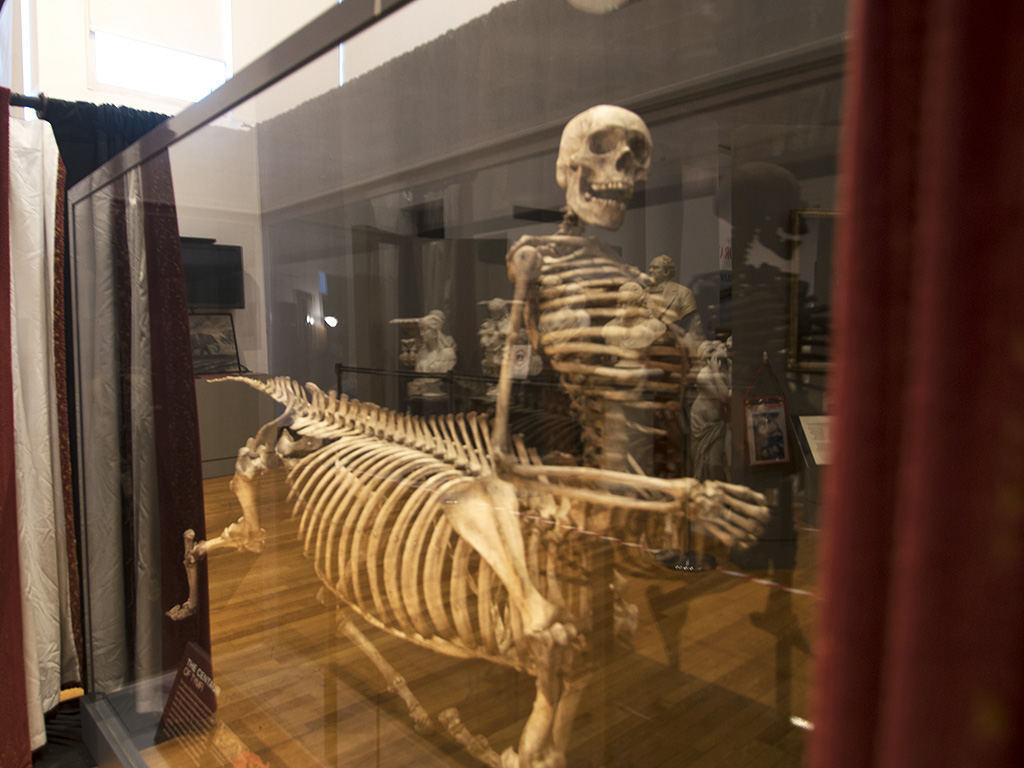Episode 27: A Leg Up

While Boston has more than rebounded from the great recession, many of New England’s smaller cities are still feeling the pain of de-industrialization. In Massachusetts, some of these former mill towns are plotting a comeback. We take a look at what two so-called Gateway Cities are doing to provide economic opportunity. We also learn about the down and dirty politics of Providence, Rhode Island in the 1970s and ’80s, when city leaders cozied up to the mob, with the makers of the podcast Crimetown. And with the “Greatest Show on Earth” coming to a close, we pay a visit to a museum dedicated to P.T. Barnum in the showman’s hometown of Bridgeport, Connecticut.
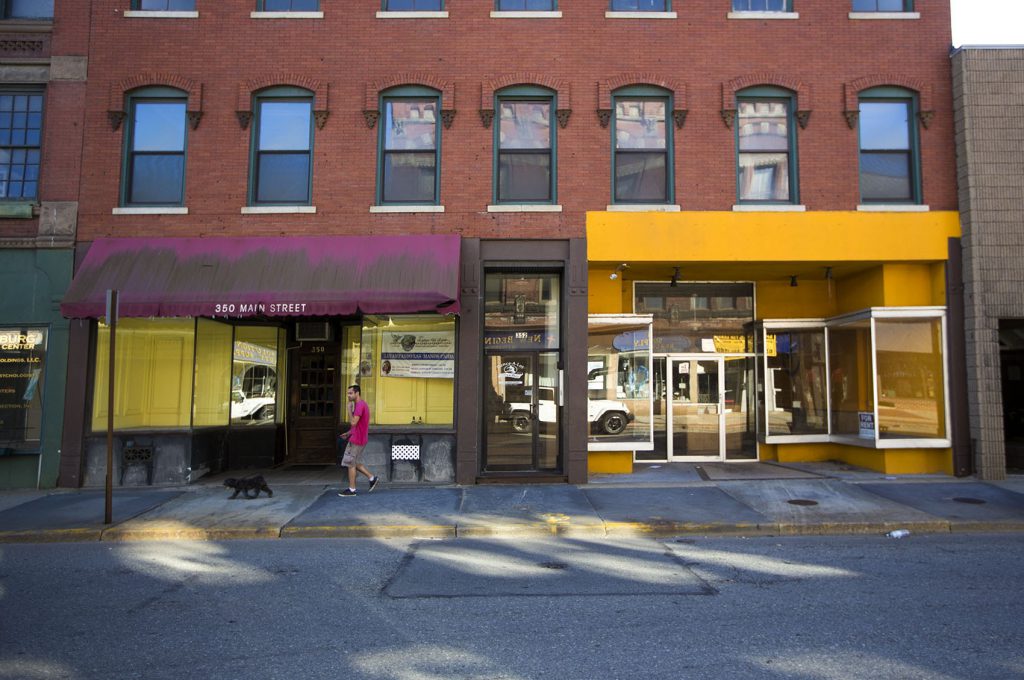
A man walks his dog in front of vacant commercial spaces along Main Street in Fitchburg, Mass. (Credit: Jesse Costa/WBUR)
Gateway to the American Dream
Immigrant workers from Ireland and Germany were some of the first laborers in Lawrence, Massachusetts, filling the city’s 19th-century mill buildings with the hum of textile looms. Today, Lawrence has converted these buildings to refurbished work spaces for artists, innovators, and entrepreneurs. Shannon Dooling of WBUR brings us the story of how two Massachusetts towns are working to pull their economies into the 21st century.
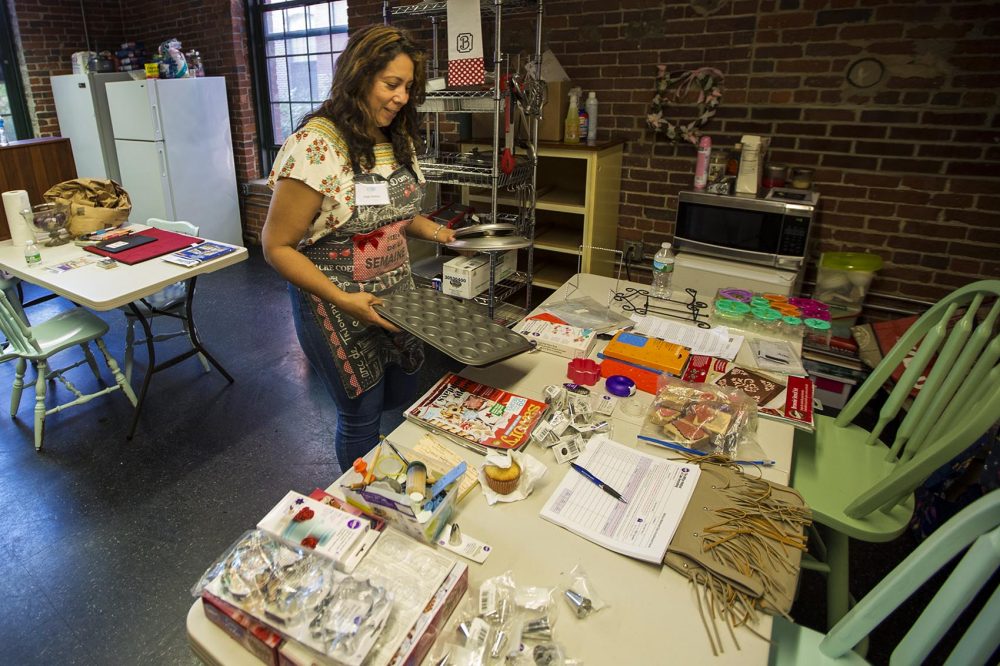
Angie Jimenez is a graduate of Entrepreneurship for All, a business accelerator program in Lawrence. She’s starting a cooking school in a renovated mill building in the city. (Credit: Jesse Costa/WBUR)
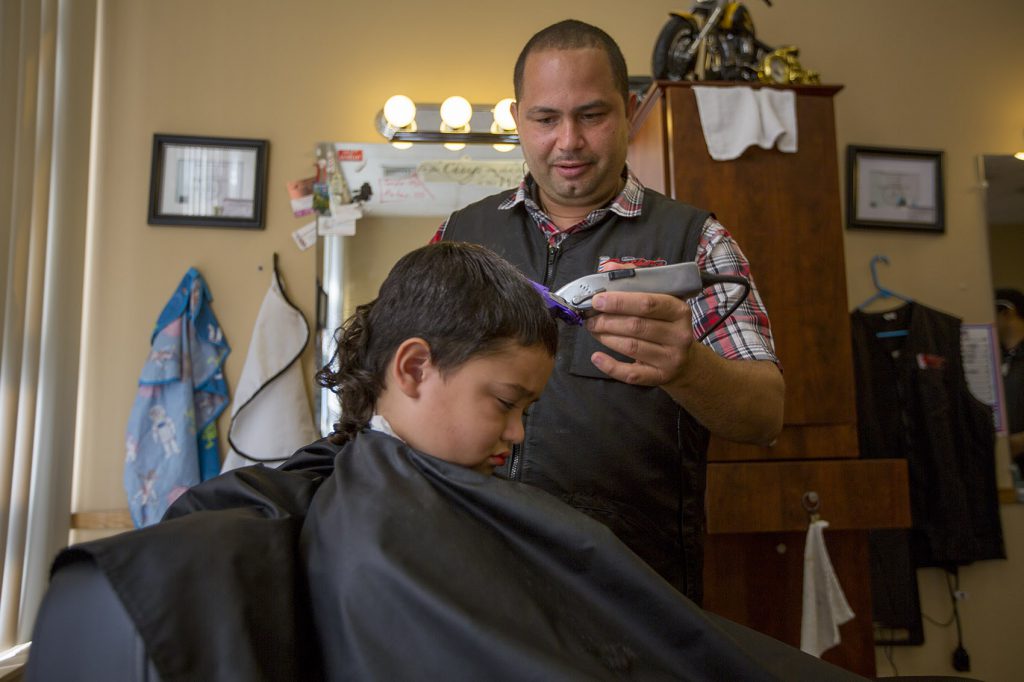
Luis Feliciano cuts the hair of a young boy at the newly opened Brothers Barber Shop on Main Street in Fitchburg. (Credit: Jesse Costa/WBUR)
It seems that the closer you are to the boom that’s happening in Boston, the better off you are, and the same goes for cities in southwestern Connecticut, in the orbit of New York City. But economic booms bring high housing costs, sometimes far exceeding what lower-wage workers can afford. That’s especially problematic in many of New England’s coastal communities.
And as rent prices rise, assistance for those who can’t afford those rents is not keeping pace. We speak with Andrew Flowers, an economics writer at FiveThirtyEight, whose recent article on the subject profiled a family in South Portland, Maine.
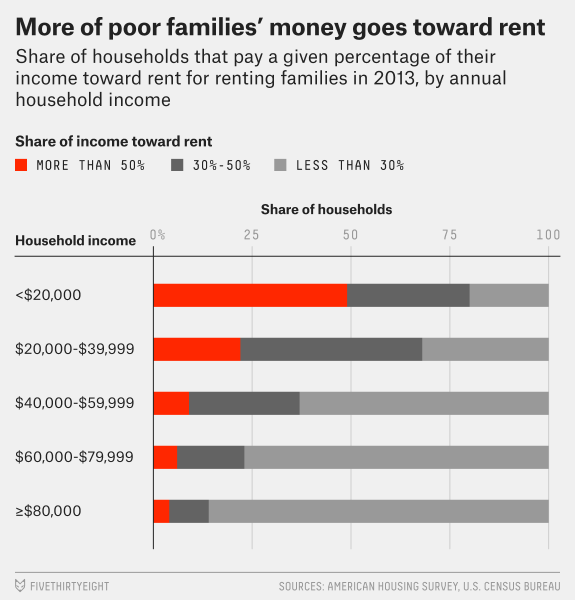
(Credit: FiveThirtyEight)
This segment was first featured on the podcast on September 22, 2016.
Lobsters and Mobsters
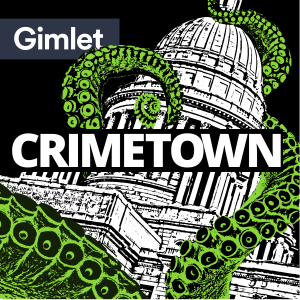
Logo for the Crimetown podcast. (Credit: Gimlet Media)
A Republican who ran on the promise of breaking up the corrupt Democratic machine in Providence in 1974, Vincent “Buddy” Cianci was a hard-working mayor. He’d stay at the office into the night fixing problems, and would even show up at a fire at two in the morning.
But in order to get elected, Cianci cut deals with the political machine, and he “made arrangements” with the local mob.
Marc Smerling and Zac Stewart-Pontier, producers of the HBO documentary series the Jinx, sat down with mobsters and bureaucrats years later to create Crimetown, a new podcast from Gimlet Media.
Crimetown’s first season chronicles the decades-long dance between Cianci, the mob empire of Raymond Patriarca, and the people of Providence. Marc and Zac talked with NEXT about feeling torn over making their audience “fall in love with gangsters,” and how Providence has changed.
Crimetown: Excerpts from “A Promise For Change” Campaign Film from Gimlet Media on Vimeo.
This segment was first featured on the podcast on December 15, 2016.
Under the Big Top, Then and Now
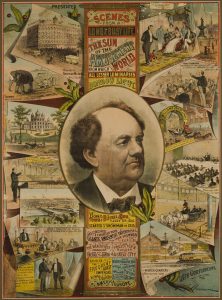
A poster in the Barnum Museum’s collection entitled “Scenes from a Long and Busy Life.” The poster was created in the early 1880s, when Barnum was in his early 70s. Courtesy of The Barnum Museum, Bridgeport, Conn.
Last month, the Ringling Bros. and Barnum & Bailey Circus announced that it will close after 146 years. The owner cited declining ticket sales after the decision to retire its elephants in 2015, and declining attention spans.
The circus’s co-founder, the legendary showman P.T. Barnum, has strong roots in our region. Phineas Taylor Barnum was born poor in rural Bethel, Connecticut. He served on the state legislature, and as mayor in his adopted hometown of Bridgeport, where he made large donations to public works.
Artifacts from Barnum’s extraordinary life as a showman are housed at the Barnum Museum in Bridgeport, an ornate sandstone and terra cotta facade that was built in 1893, two years after Barnum’s death. NEXT producer Andrea Muraskin paid a visit.
At the New England Center for Circus Arts in Brattleboro, Vermont, aspiring circus performers continue to train.
The staff there say that in many ways, the future of circus arts has never been brighter. Vermont Public Radio’s Howard Weiss-Tisman reports.

Todd Degnan performs on the Cyr wheel at New England Center for Circus Arts. Video by Howard Weiss-Tisman for VPR.
About NEXT
NEXT is produced at WNPR.
Host: John Dankosky
Producer: Andrea Muraskin
Executive Producer: Catie Talarski
Digital Content Manager/Editor: Heather Brandon
Contributors to this episode: Shannon Dooling, Howard Weiss-Tisman
Music: Todd Merrell, “New England” by Goodnight Blue Moon, “This Must be the Place” by the Talking Heads, “The Fairy Wedding Waltz” by Jasper Heard via Youtube.
We appreciate your feedback! Send praise, critique, suggestions, questions, story leads, and pictures of your favorite local curiosities to next@wnpr.org.

